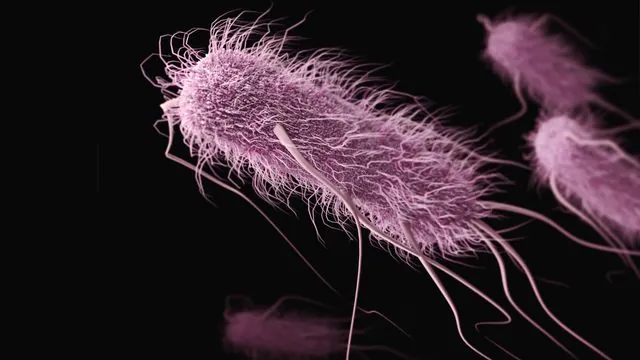
The Sinister Connection Between E. coli and Colon Cancer: What You Need to Know!
2024-11-07
Author: Li
Introduction
Colon cancer is not just a statistic—it’s the third most common and one of the deadliest cancers affecting millions worldwide. Alarmingly, young people are increasingly falling victim to this disease. Recent groundbreaking research has uncovered startling connections between specific gut bacteria and the development of colon cancer, revealing mechanisms that were previously shrouded in mystery.
The Role of pks+ E. coli
One of the most notorious players in this drama is pks+ E. coli, a strain known for producing a dangerous genotoxin called colibactin. This harmful substance binds to and damages human DNA, triggering mutations that elevate cancer risks. Studies show that pks+ E. coli levels are astonishingly high in those diagnosed with colon cancer.
Understanding Bacterial Infiltration
But how does this bacterium manage to reach and infiltrate the intestinal wall, setting the stage for cancer? Researchers from VIB-UGent and VIB-VUB have made significant strides in this area. They discovered that pks+ E. coli toggles between a free-floating state and one where it adheres to the gut’s epithelial lining. This attachment is facilitated by specialized hair-like structures known as pili, which end in adhesins that anchor themselves to cell receptors in the intestinal epithelium.
Key Findings from Research
Profound insights emerged from the research: 'We found that this pilus binding significantly increases the number, size, and aggressiveness of colon tumors,' highlights Maude Jans, the study's lead author. Prof. Lars Vereecke, the senior author, added, 'Our findings indicate that the attachment of pks+ E. coli to intestinal cells is a critical step in colon cancer progression. By targeting these attachment mechanisms, we can substantially impede tumor development.'
Adhesins and Their Impact
The research team identified specific bacterial adhesins—FimH and FmlH—that play a pivotal role in this binding process. Dr. Magdalena Kolata remarked, 'We hypothesized that these adhesins enabled bacteria to produce colibactin in close proximity to epithelial cells, leading to DNA damage and cancer risk.' Remarkably, when these adhesins were eliminated, the bacteria lost their capacity to inflict DNA harm.
Novel Therapeutic Approaches
The researchers also investigated a novel therapeutic approach aimed at preventing bacterial attachment to the gut wall. They employed molecules designed to block the binding of the crucial bacterial adhesins, and the results were nothing short of revolutionary: they successfully diminished DNA damage and tumor growth in preclinical tests. Unlike traditional antibiotics that disrupt beneficial gut microbes, this therapy specifically targets harmful E. coli strains without collateral damage.
Western Lifestyle and E. coli Vulnerability
The study also raises a cautionary note about the Western lifestyle, which may render our intestinal walls more susceptible to harmful bacteria, including pks+ E. coli.
Probiotic Considerations
Interestingly, some strains of E. coli, typically deemed benign probiotics, also possess pks genes. However, these strains do not appear to pose the same cancer risks in experiments, as they display a variant of the FimH adhesin that weakly binds to gut cells. However, the authors warn that just a few mutations could enhance binding and revive the toxic effects of these strains, prompting a reevaluation of their safety as probiotics.
Conclusion
As researchers continue to unravel the complexities of how specific E. coli strains can influence colon cancer risks, one thing is clear: preventive measures and awareness are more crucial than ever.
Stay Informed!
Stay tuned for more updates in the world of health and science!


 Brasil (PT)
Brasil (PT)
 Canada (EN)
Canada (EN)
 Chile (ES)
Chile (ES)
 España (ES)
España (ES)
 France (FR)
France (FR)
 Hong Kong (EN)
Hong Kong (EN)
 Italia (IT)
Italia (IT)
 日本 (JA)
日本 (JA)
 Magyarország (HU)
Magyarország (HU)
 Norge (NO)
Norge (NO)
 Polska (PL)
Polska (PL)
 Schweiz (DE)
Schweiz (DE)
 Singapore (EN)
Singapore (EN)
 Sverige (SV)
Sverige (SV)
 Suomi (FI)
Suomi (FI)
 Türkiye (TR)
Türkiye (TR)